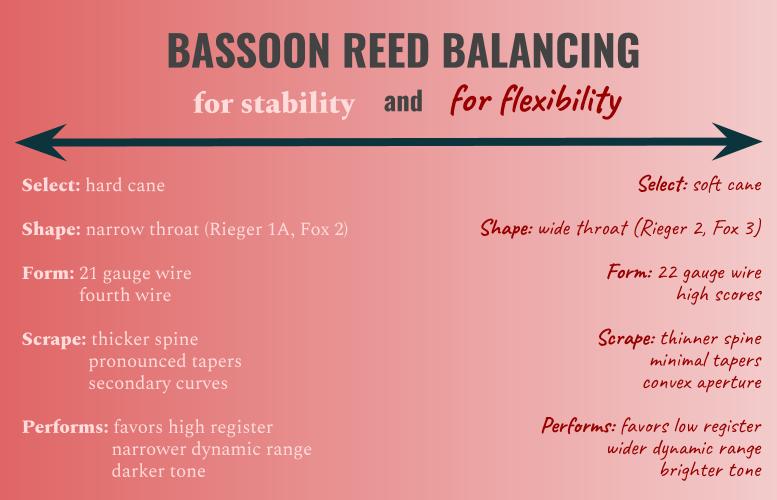Like all other woodwind reeds, bassoon reeds fall on a spectrum of soft to hard. I identify the characteristics of reeds, both desirable and undesirable, as fundamentally relating to the properties of flexibility (softness) and stability (hardness).
This chart shows many variables that are involved in this process, many of which are outside of your control without very specialized training in reed making and should be left to your student's private instructor, if available. The pages that follow in this module, however, show some tests and adjustments you can do to impact how flexible or stable reeds are, assuming they are close to optimum function.
This chart shows many variables that are involved in this process, many of which are outside of your control without very specialized training in reed making and should be left to your student's private instructor, if available. The pages that follow in this module, however, show some tests and adjustments you can do to impact how flexible or stable reeds are, assuming they are close to optimum function.
